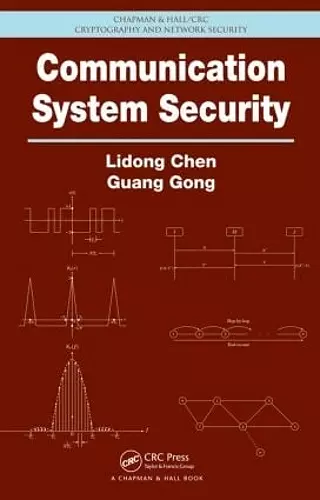Communication System Security
Lidong Chen author Guang Gong author
Format:Hardback
Publisher:Taylor & Francis Inc
Published:29th May '12
Currently unavailable, and unfortunately no date known when it will be back

Helping current and future system designers take a more productive approach in the field, Communication System Security shows how to apply security principles to state-of-the-art communication systems. The authors use previous design failures and security flaws to explain common pitfalls in security design.
Divided into four parts, the book begins with the necessary background on practical cryptography primitives. This part describes pseudorandom sequence generators, stream and block ciphers, hash functions, and public-key cryptographic algorithms.
The second part covers security infrastructure support and the main subroutine designs for establishing protected communications. The authors illustrate design principles through network security protocols, including transport layer security (TLS), Internet security protocols (IPsec), the secure shell (SSH), and cellular solutions.
Taking an evolutionary approach to security in today’s telecommunication networks, the third part discusses general access authentication protocols, the protocols used for UMTS/LTE, the protocols specified in IETF, and the wireless-specific protection mechanisms for the air link of UMTS/LTE and IEEE 802.11. It also covers key establishment and authentication in broadcast and multicast scenarios.
Moving on to system security, the last part introduces the principles and practice of a trusted platform for communication devices. The authors detail physical-layer security as well as spread-spectrum techniques for anti-jamming attacks.
With much of the material used by the authors in their courses and drawn from their industry experiences, this book is appropriate for a wide audience, from engineering, computer science, and mathematics students to engineers, designers, and computer scientists. Illustrating security principles with existing protocols, the text helps readers understand the principles and practice of security analysis.
"For mathematicians, both students and researchers, the book gives comprehensive information about practical aspects of cryptography. … Each chapter is supplied with an appropriate number of exercises. They are well chosen to demonstrate and clarify the considered topics. A rich (but not excessively large) bibliography is given at the end of each chapter. This organization of the book is quite handy for the reader."
—Nikolai L. Manev, Zentralblatt MATH 1263
ISBN: 9781439840368
Dimensions: unknown
Weight: 1154g
750 pages